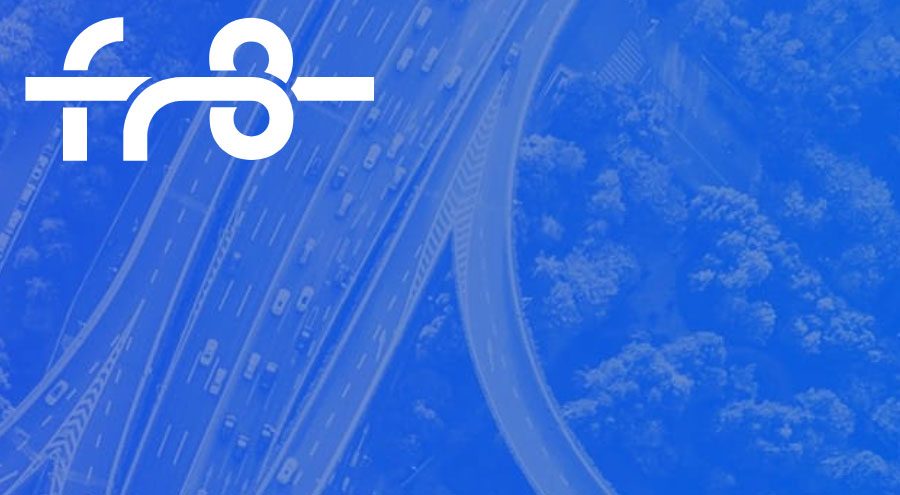You are driving along the highway. The scenery is beautiful, the sun is shining, and you have been in proximity to the same two cars for the past two hundred miles and now consider them your friends. Though, ahead of you is a truck. It’s going slow, so you go over to the left to pass it.
As you do, the sun vanishes for a moment. It is only you and this truck’s shadow. You mutter soothingly to your car, urging it to get you past the truck safely lest it falls over for some inexplicable reason.
But unbeknownst to you, that truck is empty. It’s annoying enough to have to pass it—though trucking is arguably the backbone of American commerce and your online shopping orders don’t arrive without them—but you could at least trust it was doing something important. Why is it empty? Because the trucking industry is far more inefficient than anyone would like to believe. If you knew the truck was empty, you wouldn’t cross your toes (your fingers are on the wheel) as you pass—you’d shout in rage.
The Inefficiency of the Supply Industry
The Environmental Defense Fund notes that 15-25 percent of trucks on US roads are empty, and trailers are 36 percent underutilized. Trucking is a $700 billion industry, and yet those empty or partially used trucks drive 29 billion miles each year. Why is the system so inefficient?
Trucks aren’t trains. Railroads are fixed, which means that when they were much easier to track when they were responsible for relocating goods. Now that there are thousands of trucks on United States roads at any given moment, it’s much more difficult to trace their whereabouts and keep costs low.
Brokers were created to help with that, but as mergers happen and margins increase, the market has become remarkably centralized. There’s misinformation, high fees, and brokers are encouraged to book as many shipments as possible despite trucks not having any goods to carry (even though there’s plenty of demand). They also cannot oversee everything, which opens room for all sorts of mismanagement, inaccuracies, and fraud.
Connecting Everyone
So how do you fix a system so broken? You decentralize it with the power of blockchain technology. That way there’s no individual person in charge and it becomes transparent to everyone.
Jon Fox was very familiar with how maddening the trucking industry could be (as someone in the food world, he depended on timely deliveries), so he founded Fr8 Network: a “platform for shippers, carriers, and brokers to place and track orders, compare prices, assess performance, buy insurance, and set payment and credit. Add decentralized apps, blockchain encryption, and a new ‘utility token,’ and you can wipe out billions in unnecessary costs. Broker fees now at up to 30 percent of shipping costs can fall to less than five percent.”
The platform enables all parties involved in the industry to see what they need to see. If you’re a driver looking for work, you can search for customers in your area looking to ship products. Once you’ve delivered the load, you can look for other customers in the new area and bring something back home. This way, trucks don’t have to drive empty, and users can trace where their shipments are and plan their other activities accordingly (it also decreases the likelihood of something getting lost!).
If you’re a supplier, you can also search for drivers. Fr8’s platform includes Fr8 ratings, so you can ensure anyone you hire or work for is reputable. The rating system also motivates everyone to remain as reliable as possible at risk of losing business.
Using Fr8 Network is cheaper, too. You have to pay an access fee in Fr8 Token, the network’s own cryptocurrency, but you save a great deal of money on brokerage fees. Brokers can still act as representatives for carriers and suppliers, but their duties will be shifting away from mediation.
How it Works
Using the network presents you with Fr8 Board. According to Fr8 Network’s white paper, “Fr8 Board is a decentralized marketplace for carriers and shippers to coordinate freight transactions through customizable smart contracts… Smart matching and curation technology presents users with the best options to optimize capacity.” It works like most online load boards, where users create profiles that detail what they need and who they are. On a deeper level, though, Fr8 uses a proprietary algorithm to combine “public data, peer reviews, and historical transaction data creating a Fr8 rating for every user, which is visible to everyone.”
These ratings are presented dashboard-style tailored to each user. Once parties have agreed to work with each other and settled terms, “a smart contract is queued. The shipper places a predetermined amount of Fr8 Token into the contract for escrow, which is held until delivery is made and the contract is satisfied.” Fr8 Token is an ERC20-compliant cryptocurrency produced on the Ethereum blockchain, so users have real stakes involved.
All participants have to be registered (which acts as a KYC and AML tool) too, and need to pay a platform fee to prevent anyone from gaming the system. When everyone is motivated to fulfill a contract to the best of their abilities and not a moment is wasted, transporting goods will be a whole lot easier (and much less enraging).
How do you think Fr8 Network will change the trucking industry?
